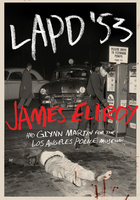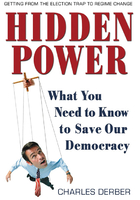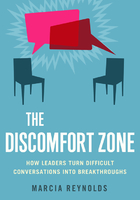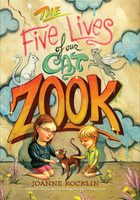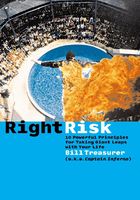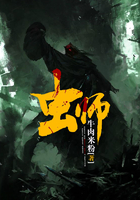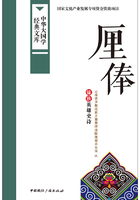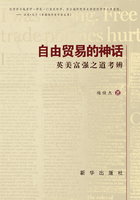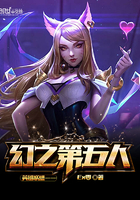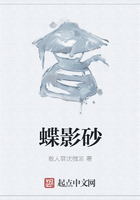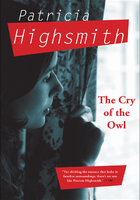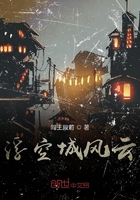BY THE TIME I RETURNED HOME, Uncle Clyde had already driven off to his office in downtown Elston, two miles away, which was fine by me. For the better part of the morning, the house belonged to just Mama and me. We scrubbed stains out of the laundry on a washboard in the kitchen, while out in the backyard a fire crackled and simmered beneath a large iron pot, stacked upon bricks, filled with water and Lux laundry soap. We rinsed and wrung out all the whites, and once the water outside bubbled to a boil, we carried the garments from the house and plunked them into the steaming pot.
I jabbed the laundry plunger into swirls of fabrics the colors of cream and snow, while bubbles popped and spat at my fingers, threatening to scald. Steam dampened my cheeks and made me feel a little feverish. A little dizzy.
"Everyone's warning me to watch out for Joe Adder," I said to Mama.
She lowered the tulip-embroidered tablecloth into the pot, keeping her eye on the task at hand.
"Did you hear what I said, Mama?"
"Who's 'everyone'?"
"Robbie. Mildred. Sheriff Rink."
She lifted her head. "You've spoken to the sheriff?"
"I saw him on my way back home this morning." I plunged the tablecloth down to the bottom of the pot, where the tangle of fabrics resembled a woman in a nightgown writhing in the blackness beneath the water. I wiped my forehead with the back of my hand. "Has Uncle Clyde ever said Joe was mentally unstable?"
Mama took the plunger from me and stirred the mass of laundry herself. "He doesn't want to talk about Joe Adder, which you should have known at the dinner table yesterday. Don't ever bring up unpleasant topics during meals, Hanalee."
"Why doesn't he want to talk about Joe?" I asked. "I thought you said we're supposed to be forgiving."
"You can forgive him, but don't dwell on him. He's still not easy to talk about."
I watched her agitate the cloths and the undergarments in the tub and remembered Joe's talk of white hoods and robes.
"What does Uncle Clyde say about my future here?" I asked.
Mama peeked up at me without lifting her head. "Why do you ask that?"
"I'm not sure if I can imagine him paying for me to receive further schooling after I graduate. And we all know I can't marry anyone around here, unless a nonwhite young man actually moves into the region. I'm not sure if anyone would hire me for work." I drummed my fingers against my sides. "What on earth am I supposed to do for the rest of my life?"
"Well"—she brushed a lock of hair out of her eyes with fingers red and cracked from the washing—"Uncle Clyde says you're welcome to live here with us as long as you please."
"Does he even like me?"
"Hanalee!" She jabbed at the wash with a force that splashed water over the edge. "The questions you're asking …"
"How does he feel about the Negro race in general?"
Mama's jaw dropped. "Why are you asking such things? Uncle Clyde is most certainly not a bigot, if that's what you're insinuating."
"If I'm going to be stuck in a house with him, I want to know precisely what type of man he is."
"He's a good man who wants you to have a decent future."
"I'm thinking of becoming a lawyer."
Mama wrinkled her forehead and placed a hand on a hip. "A lawyer?"
"Yes." I grabbed the plunger back from her. "I would love to one day open up a newspaper and read the words 'Hanalee Denney, a little lady lawyer descended from Georgia slaves, overturned Oregon's exclusion laws and interracial marriage laws—and fought hard to bring justice to people like her father. People killed by cowards who hide their guilt behind others.'"
"What did you just say?"
I plunged the laundry deep into the scalding water until my back hurt from bending and straining.
"What's going on, Hanalee?" She shaded her eyes from the sun. "Have you seen Joe?"
I gulped, but I didn't stop plunging.
"Have you?" she asked again. "Hanalee?"
I met her eyes. "If I saw Joe, wouldn't I tell you?" A simple question. Not an outright lie.
"I certainly hope you would tell me. I hope you always speak the truth to me. Why did you say such a thing about your father's death?"
"I'm just exhausted. I didn't sleep well last night." I bowed my head over the water. "I don't know what I'm saying."
Mama gave a sigh and wandered over to the clothesline with her tired walk, her shoulders lowered, hips swaying. I watched her fetch the pins we'd use for drying. A troubled frown darkened her face.
We finished boiling the whites and hung them on the line before boiling all the darks, and then the darkest darks. Warblers twittered in the nearby woods, and sunlight crept over the back of my neck with the tips of its burning fingers.
We didn't say another word about Joe.
We didn't say another word about much of anything.
I KEPT QUIET ALL THROUGHOUT SUPPER AND DURING our evening of silent reading with Uncle Clyde. I sat on the sofa and flipped through the pages of Noted Negro Women: Their Triumphs and Activities, by Monroe Alphus Majors, a book I'd received as a Christmas present from our former reverend's late wife, Mrs. York, when I was ten. She even wrote an inscription to me in the front of the book:
Keep dreaming, Hanalee, just like all the brave and wonderful women inside these pages.
—Mrs. Georgina York, December 1917
I came upon a section that featured a woman named Charlotte E. Ray, the first black female lawyer, who was admitted to the District of Columbia Bar way back in 1872. My heart beat faster, and I sat up a little straighter.
Yet I didn't make one peep about laws or injustices or the death of my father.
No more than six feet across from me, Uncle Clyde read his own book—Sinclair Lewis's Babbitt—with a mug of coffee steaming by his side, as comfy as can be in my father's beloved maroon armchair. Worn spots on the arms marked the places where Daddy's elbows used to rest. On the wall behind Uncle Clyde hung my father's framed pencil sketches of the hickory trees that grew behind his family's home in Georgia, as well as his delicate line drawings of the brick and sandstone buildings of turn-of-the-century Portland.
"Is everything all right, Hanalee?" asked my stepfather with a tilt of his head. He pushed his specs farther up his narrow nose, which ended in a sharp point small enough to fit inside a pencil sharpener.
I turned the page of my book, and out of the corner of my eye I saw Mama glance up from her copy of Good Housekeeping.
"Hanalee?" said Uncle Clyde. "You've been quiet this evening. Is something troubling you?"
"No, everything's just dandy," I said, and I flipped another page.
In my peripheral vision, I saw my mother share a look of concern with her new husband. They both wrinkled their foreheads. They glowered.
Later that night, I lay in my bed, tucked beneath my sheet and my quilt, still in my brown day dress but with my feet bare and my hair unpinned for the night. On the bedside table a candle flickered. Beeswax wept down the yellowish sides and pooled onto the pewter rim of the candlestick, and the air smelled of fire and honey. I reached out and touched the hot puddle, just to experience a sensation aside from the sting of distrust. A soft sizzle met my ears. My fingertip smarted. I blew on the skin until it cooled, but my chest continued to burn.
"People shut me up at my trial," Joe had told me at the pond. "No one, not even my own lawyer, let me speak, as if they'd all gotten paid to keep me quiet."
I fetched my sketch pad and pencil from the floor below my bed, and without even thinking much about it, I drew a picture of Joe standing in a body of water with his chest exposed and his dark hair hanging over his right eye. His mouth emerged from the tip of my pencil as two parted lips, poised to tell me his tale of my stepfather.
SOMETIME AFTER ELEVEN O'CLOCK, MAMA'S AND Uncle Clyde's footsteps and muffled voices traveled upstairs and to their bedroom, down the hallway from mine. Their door shut, and I winced, trying not to imagine them together, naked. Uncle Clyde's voice rumbled through the walls, and Mama's softer tones replied to whatever he said.
A gust of wind blew through my window, snuffing out the candle's flame. Darkness engulfed the room and turned all my furniture into shadows. I rolled onto my side and struck another match, lighting the wick, smelling sulfur in the air.
I could have used the lamp sitting on my chest of drawers to light my room, but I chose not to. Uncle Clyde had brought electricity to our house after his marriage to Mama last January, but I felt that electric light—that unnatural burst of blinding energy—possessed no heart. No passion. No joy. Candlelight cast such a delicate beauty. It flickered with emotions and warmed one's skin and soul.
Beyond the foot of my bed, the window beckoned. I slid my bare feet out from under the sheet and padded over to the half-shut pane. Fleur was right. A golden glow hovered in the sky above the treetops. I raised the sash to its full height, and a breeze fingered its way through my hair, carrying with it the odor of burning wood—the smell of all the illegal stills, perhaps. Or the scent of the stove in the Paulissens' old shed. Or even the flames of hell, waiting for me, should I choose to scheme with Joe Adder. I could see a stretch of the main highway to my left, through a cluster of trees with summer leaves the deep purplish-red of forbidden wine. I poked my head out the window and strained my ears for the sound of restless feet shuffling down the road toward our house.
Nothing.
Not even a single dog barked from any of the nearby farmhouses.
Next to my window, on top of the writing desk that Daddy had built and painted bright strawberry-red when I was five, sat two framed photographs of my father. The first was of my parents' wedding day, back in September 1901. They had to cross the Columbia River to Washington to find a preacher who would marry them, and it took them five tries before they found a man of the cloth willing to conduct the ceremony. Mama wore a high-collared white dress and a veil with a crown of plump rosettes. Daddy was as handsome as ever in his bow tie and suit, with a rose blossom pinned to the lapel of his coat. He had smiling brown eyes and a nose that was narrow on top and broad on the bottom, just like mine.
According to Mama, Fleur's father took the second photograph, a portrait of Mama, Daddy, and me, back when I was about two or three years old. Mama had put me in a dress with frills and lace that swallowed me whole, and a white hair bow devoured the top of my head of chin-length ringlets. I sat on our porch rail, and Daddy held me from behind, while Mama held on to him, all three of us interconnected.
I turned my head away from the photographs and cast my glance to the drawer of my bedside table. The bottle of Necromancer's Nectar was hidden within, as well as a teaspoon I had snuck upstairs earlier that evening, after cleaning up the supper dishes with my mother.
I crept across the room, and, without a sound, holding my breath, I slid open the drawer. The items lay before me.
A spoon and a brown bottle covered in symbols.
A spoon and a bottle and hope.
After a few swift twists, the cap came off in my fingers. My hands shook, but I managed to pour a spoonful of a liquid the color of rust and bitter in smell.
"Oh, dear Lord." I took a breath and eyed the potion sloshing about in the bowl of the spoon. "Please don't let this puddle of rust water kill me."
I slid the cold metal into my mouth and winced at the burn of fire and sin on my tongue. The tonic scorched my throat and sweated straight through my skin. My eyes watered; my hair thickened into a blanket made of wool that scratched at my neck and smothered my back. Perspiration trickled down my cheeks, my chest, my spine … I unfastened the top button of my bodice to keep from burning alive.
I shoved my feet into my shoes and left my bedroom, in search of cool air and answers. After every three steps, time seemed to hiccup forward, and I found myself five feet farther ahead than I expected to be.
The landing of the staircase.
The middle of the steps.
Halfway across the entry hall.
The front door.
The front yard.
Confidence surged through my blood, along with the flames of the potion. Before long I found myself marching up the highway, toward Reverend Adder's house, where Daddy had died almost nineteen months earlier. The light of the whiskey stills lingered in the air, practically begging to be discovered by federal agents, and the moon, waning in its last quarter, cocked a half smile in the black July sky.
Time kept skipping ahead. I moved a quarter mile. A half mile. Another highway—one that led to the farmlands of the south and the finer houses of the north—met up with the main road, and there I stood, in the crossroads, as crazy Mildred Marks had told me to do. Using the toe of one of my Keds, I drew a circle in the gravel, next to the southeastern points where the two streets met, and I stepped inside it. I waited with my arms hanging by my sides, my veins flowing with molten lava, all alone in the pitch-dark, near midnight, surrounded by a devil's circle.
"Lord, help me," I whispered.
The stink of manure was so sharp and ripe in the air, it woke me up a bit to my stupidity. I smelled stables and fields and the false sweetness of life in Elston, and I imagined someone like Robbie Witten driving by, finding me all alone, drunk on bottled moonshine.
I turned back to the east, ready to step out of my circle and dash back home, when a sound met my ears.
Footsteps.
Labored footsteps—like those of a man dragging a busted leg as he limped toward me across the macadamized road made of tar and broken rocks. I pivoted on my heels, facing west again, and peered into the stretch of darkness before me.
I saw him. A man my father's height, with long legs and a sturdy build. He wore a dark suit, a crimson bow tie, and a familiar black derby hat that Mama and I bought one Christmas during the war years, when our cornfields turned a fair profit and we waited for Daddy to return from the fighting overseas. He ambled closer, favoring his left leg, and I glimpsed the shine of his brown eyes—eyes swimming with so much love, they just about melted me to the ground. I recognized his golden-brown skin, his strong jaw, his broad nose, his smooth complexion that always made him look much younger than a man who had endured forty-one years of hardships.
My father, Hank Denney, staggered toward me on that midnight road and stopped two yards away from the shoe-drawn circle in which I trembled.
"Daddy?" I asked, my voice catching in my throat.
He took off his hat and held it against his chest, and he peered straight at me, like a man who lived and breathed.
"I'm so sorry, Hanalee," he said, his voice gentle yet strong and deep enough to rumble inside the marrow of my bones. "I'm so terribly sorry. I should have gone to church with you."
"But …" I shook my head. My chin and nose quivered with spasms I couldn't control. "D-d-did you tell Joe—Joe Adder … Did you tell him that the doc would be—be the death of you?"
He lowered his face and wrinkled his brow. "My body just couldn't take what it was given that Christmas Eve, baby doll. I'm sorry I wasn't a stronger man and that hate won out that night." He heaved a sigh that made his shoulders rise and fall. "Hate is a powerful demon that worms its way into the hearts of fearful men."
"But … Joe … not the doc. J-J-Joe Adder killed you. Didn't he?"
"That Model T surely didn't feel good, I admit, but that boy was so scared"—Daddy raised his eyes to me, a sad smile on his face—"I worried more about him than about myself. No …" He placed his hat back on his head. "Joe Adder didn't kill me, Hanalee. I put full blame on the doc."
"But … Mama … she …" Tears swam in my eyes, blurring him from view. "Sh-sh-she remarried, just this past winter. Dr. Koning comforted her and—"
"Don't be harsh on your mama. I should have fought harder to survive that night. I should have taken better care of myself so my heart could've been stronger."
"How can you possibly blame yourself? You just said—"
An automobile engine growled our way from somewhere down the road.
Daddy glanced over his shoulder and stepped back with his good leg. "Go home. It's not safe to wander these roads late at night."
"Do you want revenge, Daddy?"
"Go home. And stay away from the doc."
"Do you want me to—?"
"For God's sake, girl, go home!"
Headlights swerved into view, and I thought of Sheriff Rink patrolling the streets, or Deputy Fortaine with his Hollywood smile and his ties to Uncle Clyde. I jumped out of my circle and dove onto my belly in a patch of dirt behind wild blackberries, and as soon as the car roared by, my father seeped away into the darkness, as if swallowed up by ink.
He was gone.
Again.

